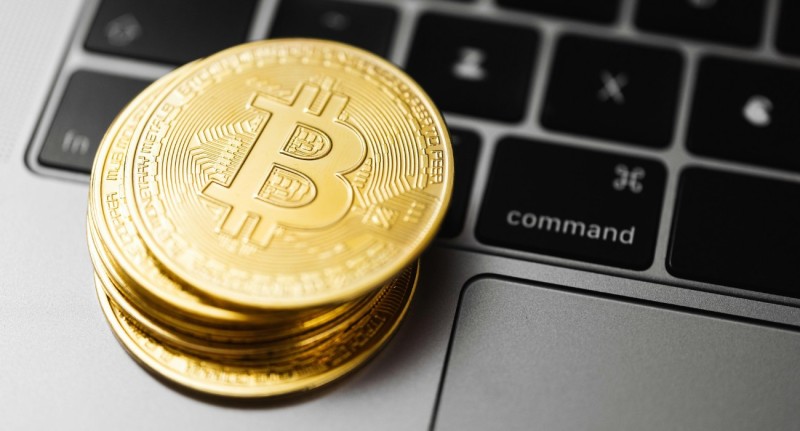For those interested in how recent trends are shaping the crypto industry, this article is just right for you. Just recently, analysts from Reuters indicated that 20% of Bitcoin miners were expected to shift to AI by the end of 2027. While AI companies are working to advance their independence and productivity, the demand keeps increasing since many industries want to use AI in their daily operations. So, what might the future look like for Bitcoin miners?
Well, the crypto industry keeps evolving, and it, therefore, means you have to always stay up to date. For instance, if you are a Pakistani investor, you might want to keep checking BTC to PKR prices to help you make better decisions that are necessary for such an industry that keeps changing rapidly. And reading this article, you will discover more facts about why Reuters believes this industry will see an increase in AI adoption and many other fascinating insights.
More Miners Cashing In On Ai Companies
Perhaps you have heard about the Web 3 storm which blockchain is part of. Boasting advanced security and computational ability, this technology can safeguard intellectual property and personally identifiable information while still allowing you to develop new digital products.
On the flip side of the coin, AI infrastructure can consume huge amounts of energy, which has become a concern in our sustainability-conscious world. Matthew Sigel, head of digital assets at VanEck, said that if 12 major publicly traded Bitcoin miners put 20% of their energy capacity into AI computation by 2027, they could boost their average annual profits to almost $14 billion.
It is no wonder why executives from over half-dozen publicly traded U.S. crypto mining companies told Reuters that most miners were integrating their huge computational power into AI to reap the full benefits of this technology.
Ai-powered Bitcoin Data Centers
The broader data center industry has been seeing growing demands for space, energy and capacity, as more people turn to AI. Nazar Khan, the CTO of Bitcoin mining company Terawulf, stated that 80% of data centers were already filled five to ten years ago, explaining whale mining companies like Hut 8 received $150 million in investment from Coatue Management to build AI structures. Some AI application-specific integrated circuits (ASICS), GPUs and IRENS, which power Bitcoin mining, share the same concept.
And did you know that the high computational power of these data centers could result in an 8% of energy use by 2030 in the US alone, according to Goldman Sachs?
According to the Economic Times, crypto mining data centers currently consume 0.4% of global electricity, and the rate is expected to grow within a few years. Well, since the number of Bitcoin miners is expected to increase by 20% by the end of the decade, power consumption should be a major consideration. Marathon Digital Holdings, the world’s biggest publicly traded Bitcoin miner, has said it has plans to utilize a nuclear-powered data center owned by Talen Energy in Pennsylvania.
In 2022, Times Magazine showed that an Open-AI search would consume 10 times more energy than a Google search. So what about an AI-powered Bitcoin miner? This is why most AI companies have opted to use advanced technology like graphic processing units (GPUs), which can run both crypto mining and AI processing without using a stupendous amount of energy.
What Does The Future Hold?
Research by VanEck shows that Bitcoin miners can take advantage of AI integration because they already possess the computational power as compared to AI companies seeking more support that would take at least four years to build. Could such statistics point to a changing trend where we will see more Bitcoin and AI merges? Well, the more reason for keeping a close eye on the industry.
In another place, Brian Dixon, an executive at Chain Capital, indicated that big tech companies might be tempted to go for the Bitcoin miners' AI fleets because they trade at $4.5million per megawatt, compared to conventional centers that trade at least $300 million per megawatt.
An example of a mining company that is already pursuing AI deals is Core Scientific. The Nasdaq-listed miner closed a deal recently with Core Weave, an AI cloud provider that will see its revenue shoot to $4.7 billion over the next twelve years. In return, Core Weave will use the miner’s data structures to host its AI chips. According to Jensen Huang, the CEO of Nvidia, tech companies are also eager to get their hands on the company’s GPUs, which most Bitcoin miners now possess.
Final Words
Since discussions of artificial intelligence began in the 1950s, a lot has changed. Fast forwarding to the 21st century, many industries including the crypto sector, have been benefiting from its advancements. One of the top benefits of AI is computational ability, which might be very helpful for Bitcoin mining companies. So, as companies seek to take advantage of such benefits, we will likely see more adopting this technology, just like Reuters predicted.
